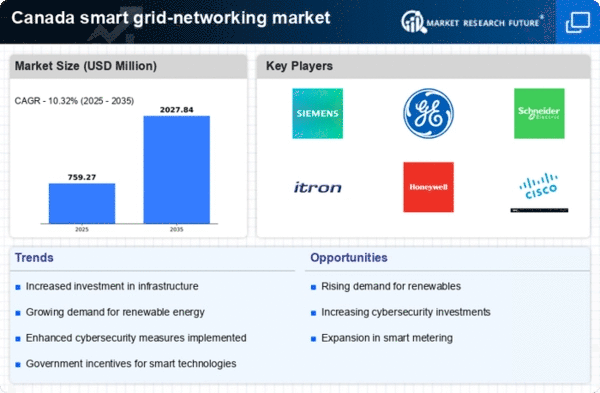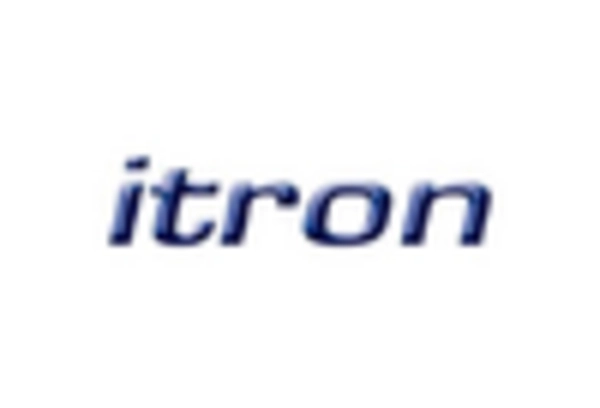Regulatory Framework Enhancements
The regulatory environment surrounding the energy sector in Canada is evolving, which significantly impacts the smart grid-networking market. Recent policy changes aim to promote innovation and investment in smart grid technologies. For example, the Canadian government has introduced regulations that encourage utilities to adopt advanced metering infrastructure and demand response programs. These regulatory enhancements are designed to facilitate the transition to a more resilient and efficient energy system. As utilities adapt to these new regulations, the smart grid-networking market is expected to grow, driven by the need for compliance and the pursuit of operational excellence.
Advancements in Smart Meter Technology
The evolution of smart meter technology plays a pivotal role in the smart grid-networking market. These devices facilitate real-time data collection and transmission, enabling utilities to monitor energy consumption patterns more effectively. In Canada, the deployment of smart meters has surged, with estimates indicating that over 90% of households are equipped with these devices. This advancement not only enhances operational efficiency but also empowers consumers to manage their energy usage, potentially leading to a reduction in peak demand by up to 15%. As utilities leverage this technology, the smart grid-networking market is likely to experience substantial growth, driven by the need for improved energy management and customer engagement.
Increased Demand for Energy Efficiency
The growing emphasis on energy efficiency is a significant driver for the smart grid-networking market. Canadian consumers and businesses are increasingly seeking solutions that reduce energy consumption and lower utility bills. This trend is reflected in government policies promoting energy-efficient technologies and practices. For instance, initiatives aimed at reducing greenhouse gas emissions have led to investments in smart grid technologies that optimize energy distribution. Reports suggest that energy efficiency measures could lead to savings of approximately $2 billion annually in Canada. Consequently, the smart grid-networking market is poised to benefit from this heightened demand as utilities implement advanced technologies to meet consumer expectations.
Integration of Electric Vehicles (EVs)
The rise of electric vehicles (EVs) is transforming the landscape of the smart grid-networking market. As Canada aims to increase the adoption of EVs, the need for a robust charging infrastructure becomes paramount. This integration requires advanced networking solutions to manage the increased load on the grid and ensure efficient energy distribution. Projections indicate that by 2030, EVs could account for 30% of all vehicles on Canadian roads, necessitating significant upgrades to the existing grid infrastructure. The smart grid-networking market is likely to expand as utilities invest in technologies that facilitate the seamless integration of EVs, enhancing grid reliability and supporting sustainable transportation initiatives.
Rising Consumer Awareness and Engagement
Consumer awareness regarding energy consumption and sustainability is on the rise in Canada, influencing the smart grid-networking market. As individuals become more informed about their energy usage, there is a growing demand for tools that provide insights into consumption patterns. This trend is prompting utilities to develop user-friendly applications and platforms that enhance customer engagement. Reports indicate that utilities that invest in customer engagement strategies can see a 20% increase in customer satisfaction. Consequently, the smart grid-networking market is likely to thrive as utilities respond to this demand by implementing technologies that foster transparency and empower consumers to make informed energy choices.
















